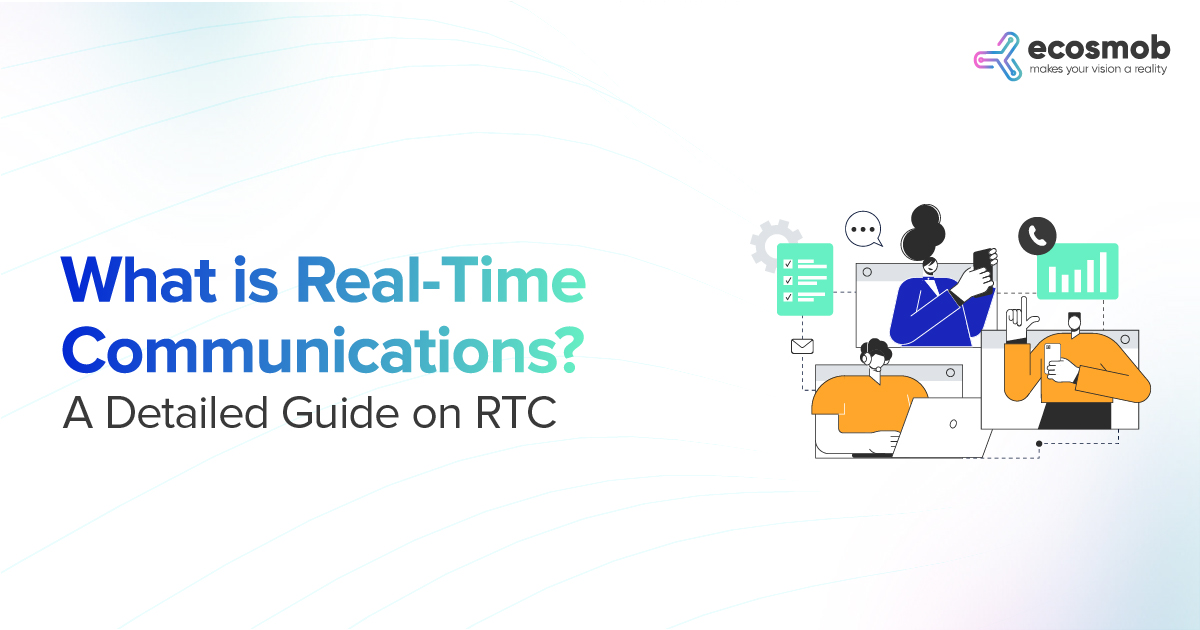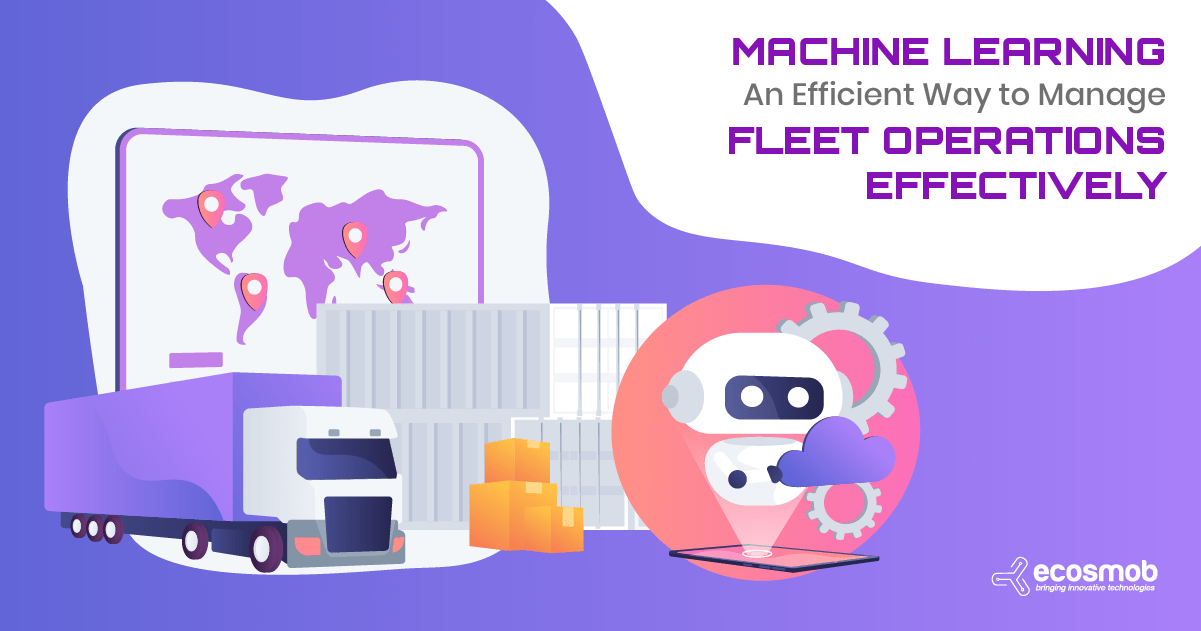Machine Learning or ML, an important branch of Artificial Intelligence (AI) has become a well-renowned term in today’s business world. It has transformed almost all the industry verticals by bringing automation and enhancing the overall working experience. Among various industries that are utilizing ML and AI to streamline their operations, the transportation sector is realizing a huge transformation in its processes, especially in fleet operations.
Let’s look at some of the key details about Machine Learning. Machine Learning is simply a solution that makes use of smart algorithms to analyze data, identify patterns, learn from the past data, and based on all this information it makes better decisions with the least interference. However, the Machine Learning development process usually requires clean, clear, and adequate data. It can get confused with too much data and may generate wrong results with too little information. Therefore, balanced data should be used and adjustments must be made to get the final algorithms for a better outcome.
Challenges Faced by Fleet Industry and How AI & ML to help to Overcome These Challenges?
In simple words, “Fleet” is a term used for “a group of vehicles”. Proper and systematic management of the fleet is essential to enhance productivity and efficiency while reducing the cost of operations. Companies that deal with the transportation business, often struggle to manage their fleets effectively. Any costly breakdown in fleet management can result in a stoppage in services and may cause huge financial losses for the companies. Some of the key challenges faced by the fleet industry include:
• Safety: Safety is the most important concern or challenge in the fleet industry. Any kind of risky driving behaviour like driver tiredness, sleepiness, over-speeding, rule breach, negligence, or any other risky behaviour may lead to serious consequences. With the help of AI along with ML solutions, the management at transport companies can easily monitor the driver’s face in real-time to determine his state of mind while driving. In case any dangerous behaviour or safety risk is identified, the management can immediately take necessary actions to prevent any worst situation. ML plays an important role in such a case as it utilizes a predictive analysis system to prevent any potential accidents and immediately alert the drivers who are at risk. It also allows management to plan and execute training programs based on the driver’s performance.
• Incompetent Fleet Management Process: Various incompetent fleet management processes such as inefficient operations, functional issues, manual tracking processes, and others can badly affect the performance of the transportation and logistics industry. However, with the help of AI and ML, this issue can be overcome with ease. The technology assists management in tracking all the processes, activities, data, and other important information in real-time. This helps in eliminating any suspicious activity. Besides, it allows management to make smart decisions for better performance and an efficient fleet management process.
Benefits of ML-Powered Fleet Management
• Enhanced Driver & Vehicle Safety
• Real-time Tracking of Vehicles
• Controlled driving behaviours
• Improved Vehicle Routing
• Superior Customer Service
• Better Productivity
• Reduced idling and driver Downtime and Increased Vehicle Availability
• Reduced Vehicle Maintenance Costs
• Improved Dispatching via Automation
• Better Control Over Fuel Consumption
• 24×7 Visibility into Fleet Operations
The Implementation of AI and ML with Fleet Management Process
The implementation of smart management systems like AI and ML into fleet management can help the Fleet industry to manage all its operations and processes easily and efficiently. The ML technology helps in creating smart systems with the capability to learn from the past data and make informed decisions to handle and manage any practical situation in a better manner. Besides, the AI-powered fleet management system can execute various other key functions such as:
• Collect accurate road data and transfer it to other devices
• Transfer all the important information across every department in the supply chain
• Analyze various data in real-time
• Detect any unusual behavior like inattentiveness, drowsy, sleepy, etc., thereby helps in preventing serious accidents
• If any accident or mishap happens, it captures the whole video footage from various angles to help management find the right cause of the accident
Conclusion:
With the use of the right ML development services, the various processes in the transportation industry, especially fleet management can perform smartly and efficiently with the least chances of mistakes. With the help of AI and ML, the whole processes in the transportation industry can be streamlined and various challenges such as efficient resource utilization, identifying dangerous driving behaviour, data collection and analysis, operational costs, timely order fulfilment, and more can be overcome with ease. On the whole, by delivering valuable insights via ML, the productivity of the transportation industry can be improved to a great extent which ultimately helps in creating a better future for the transportation sector.















